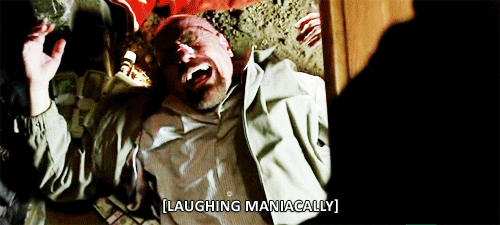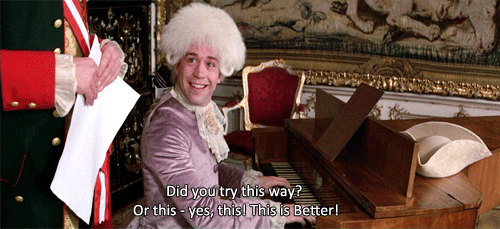Many French words and expressions are used in English. Not just words like liberty which comes from the French liberté, but also expressions that are often pronounced with a semblance of French accent and used in very specific contexts in English.
What’s interesting is that those words and expressions are not used the same way in French.
Déjà-vu
In English you can say that you “had a déjà vu.”
Such as in a song by Olivia Rodrigo:
Do you get déjà vu when she's with you?
In French, to mean the same thing, you would instead say:
J’ai comme eu une sensation de déjà-vu
I had a sensation of déjà-vu
Ça a un air de déjà-vu
It has an air of déjà-vu
Otherwise, déjà vu can also simply mean “already seen” such as in:
Ce film, je l’ai déjà vu
I’ve already seen this movie
You can also say that a situation or a thing is “old news” by saying that:
C’est du déjà-vu
An encore
When you go to a concert and the artist plays the set they were expecting to play, but after the first or second round of applause at the end, they continue playing, it’s called an encore, in English.
In Quebec, we say un rappel.
Ils ont joué trois chanson en rappel
They played three songs as an encore
There’s also the word un bis that can be used. However, that one is not used much in Quebec.
Le public applaudit à tout rompre et crie : bis! bis!
The audience applauds wildly and shouts: bis! bis!
An entree
In a restaurant in the US or Canada, you’ll often find that the main courses are called entrees, which comes from the French word entrée.
However, in French, une entrée means an appetizer!
And an entree is called un plat principal!
So to summarize, the order of the courses in French are generally:
Entrée
Plat principal
Dessert
Cri de cœur
In English, this expression means a passionate appeal, complaint, or protest.
In French, it’s the same meaning, but it’s supposed to be cri du coeur, because it literally means, “scream from the heart.”
Complètement exaspérée, Bianca Longpré en avait long à dire sur l'état du système de santé et a lancé un cri du cœur
Completely exasperated, Bianca Longpré had a lot to say about the state of the health care system and launched a cri de coeur
Fait accompli
In English, it means something that has already happened or been done and cannot be changed.
Here’s how it might be used in English :
Capital Theatre Deliver 'Fait Accompli' With New Video
But in French, you need the article, otherwise it doesn’t make sense.
C’est un fait accompli
It's a fait accompli
Nous étions devant le fait accompli
We were faced with a fait accompli
Folie de grandeur
This is a delusion of grandeur. For example:
Starring Adam Driver and Marion Cotillard, Leos Carax's musical about a young star is a folie de grandeur without the grandeur.
In French, it’s supposed to be folie des grandeurs. It’s plural. For example:
Projet vital ou folie des grandeurs ?
Essential project or folie de grandeur?
Derrière l'altruisme de la bourse crypto FTX, la folie des grandeurs
Behind the altruism of the FTX crypto exchange, the folly of grandeur
Joie de vivre
In English, this expression is used almost as a concept, referring to all good things in life, and usually, all things French! For example:
Searching for my joie de vivre in the French Riviera
In French, this means “joy of living,” so it’s used in that sense, and conjugated accordingly.
Au Québec, j'ai retrouvé la joie de vivre
In Quebec, I found my (the) joie de vivre
L'astuce de cette mère de famille pour retrouver la joie de vivre
This mother's tip for rediscovering joie de vivre
Laissez-faire
In English this word is almost used exclusively in the sense of “laissez-faire capitalism,” which indicates an economic system with little government intervention.
The End of Laissez-Faire: Russia’s Attempt at Reshaping the World Economy.
In French, laisser faire means to not intervene, and can be used as a noun to mean negligence.
Les autorités ont fait preuve d’un laisser-faire contestable
The authorities have been guilty of borderline negligence
Nouveau riche
“Nouveau riche: people who have recently acquired wealth, typically those perceived as ostentatious or lacking in good taste.”
Although the same expression exists in French, don’t forget that it can also simply mean new rich.
Cette bulle immobilière pourrait créer beaucoup de nouveaux riches et aussi beaucoup de nouveaux pauvres
This real estate bubble could create new rich and new poor people
Pièce de résistance
This is the chief dish of a meal or an outstanding item or event.
For example:
Recently given a fabulous facelift, its imposing white façade screams peaceful rejuvenation and serenity. The spa is of course the pièce de résistance, a vision of white marble and blue waters.
It can be used the same way in French, but with the article.
Avignon 2022 : la pièce de résistance de Jan Martens
Avignon 2022: Jan Martens' pièce de résistance
Enfant terrible
This a famous or successful person (usually young) who likes to shock people.
This is still used in French, such as in:
L’enfant terrible du rap français
But you can’t say un enfant terrible. For example, in English:
An enfant terrible appeared in a new guise on Wednesday as designer Olivier…
This wouldn’t work in French.
Est-ce que j’ai oublié quelque chose?








How about,
"raison être"
"je ne sais quoi"
Or in the art world,
"trempe-l'oeil"
Peut-être le mot Résumé utilisée en Anglais por dire CV?